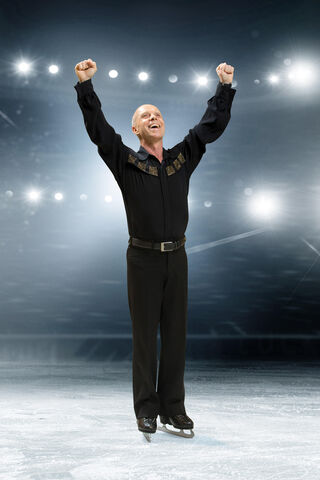Stress
12 Overlooked Ways to Improve Your Success
Lessons from Olympic champion and four-time cancer survivor Scott Hamilton.
Posted September 1, 2022 Reviewed by Hara Estroff Marano
Key points
- Lessons from failure pave the road to success.
- Talent is not enough to succeed.
- A winning mindset can help you achieve your goal.
- We all have challenges. How we choose to react makes all the difference.

Winning is a choice. Talent is not enough. Hard work is insufficient. It’s a combination of natural abilities, work ethic, and ecosystem.
Olympic champion figure skater Scott Hamilton was not destined to win, but he’s repeatedly finished first in his career. Born with a severe childhood illness, he spent most of his formative years in a hospital. His mother died when Scott was a teen, and he beat testicular cancer followed by three bouts of brain cancer. Throughout all of it, he’s kept his upbeat personality, always focused on the next goal (even doing back flips on the ice long after he retired from skating) and doing his part to make a positive mark on the world. Spend five minutes with Scott Hamilton and you will see that the positive attitude exudes from every pore of his body.
In his book Finish First, Scott shares, “Winning isn’t something that happens to you but something you build, something you fight for, a way of living that dictates everything about how you do your life.” That attitude helped him win the gold medal, beat cancer, and surround himself with an incredible community.
So what are the lessons on winning that we can learn from an Olympic champion who affected millions with his can-do attitude, not to mention his Olympic gold medal?
- Curate your ecosystem. Surround yourself with people who are better than you, and you will see your work product and work ethic improve. You will start to set new and higher expectations for yourself and work to meet these new goals.
- Losing is the main ingredient to success. If you aren’t losing, you are not taking enough risks. You have untapped potential still inside of you.
- Stop, take a pause, watch, and listen. Block out the negative voices and pay close attention to your natural capabilities and talents.
- Little is expected of those who lose. Losing is a comfortable place to be. When you always see yourself as losing, you continuously lose. Get out of that comfort zone.
- Competition is healthy. Competition pushes us forward. It forces us to look within and discover our hidden talents.
- Act like a winner. “When you start to act like a winner, you feel like a winner. When you start to feel like a winner, you act like a winner.” — Scott Hamilton
- A certain amount of stress is healthy. A certain amount of stress is necessary to get us out of the starting blocks and into the winner’s circle. Once you taste that winning level, you want to keep it, which may take a bit more stress to sustain.
- Success is a series of small steps. Longevity is an excellent indicator of success. You can achieve it only by taking small, meaningful, consistent actions over time.
- Practice is a dress rehearsal. “How you show up for practice will be how you show up to the competition.” — Scott Hamilton. (The same is true in life.)
- Dealing with failure. “When we forgive ourselves for our mistakes, we give ourselves permission to be successful again.” — Scott Hamilton
- Ignore the critics. Ask yourself why you let people you don’t even know feel as if they get to decide what you are fully capable of achieving. Moreover, why do you listen to them? Instead, ignore your critics and write your own ending.
- Success looks different. Success is a moving target and constantly changing. As such, our definition of success changes over time. Don’t let a past description drive your current path.
At 51, after beating cancer again, Scott Hamilton decided he would do his famous backflip on the ice again. “If I wanted to do something extraordinary, I had to act in extraordinary ways.”
Today, Scott Hamilton insists he didn’t retire from skating. Instead, he retired to his next goal—to raise funds for cancer research through the Scott CARES Foundation so that we can “treat the cancer and spare the patient harm.”
Learn more in Finish First and The Success Factor.


